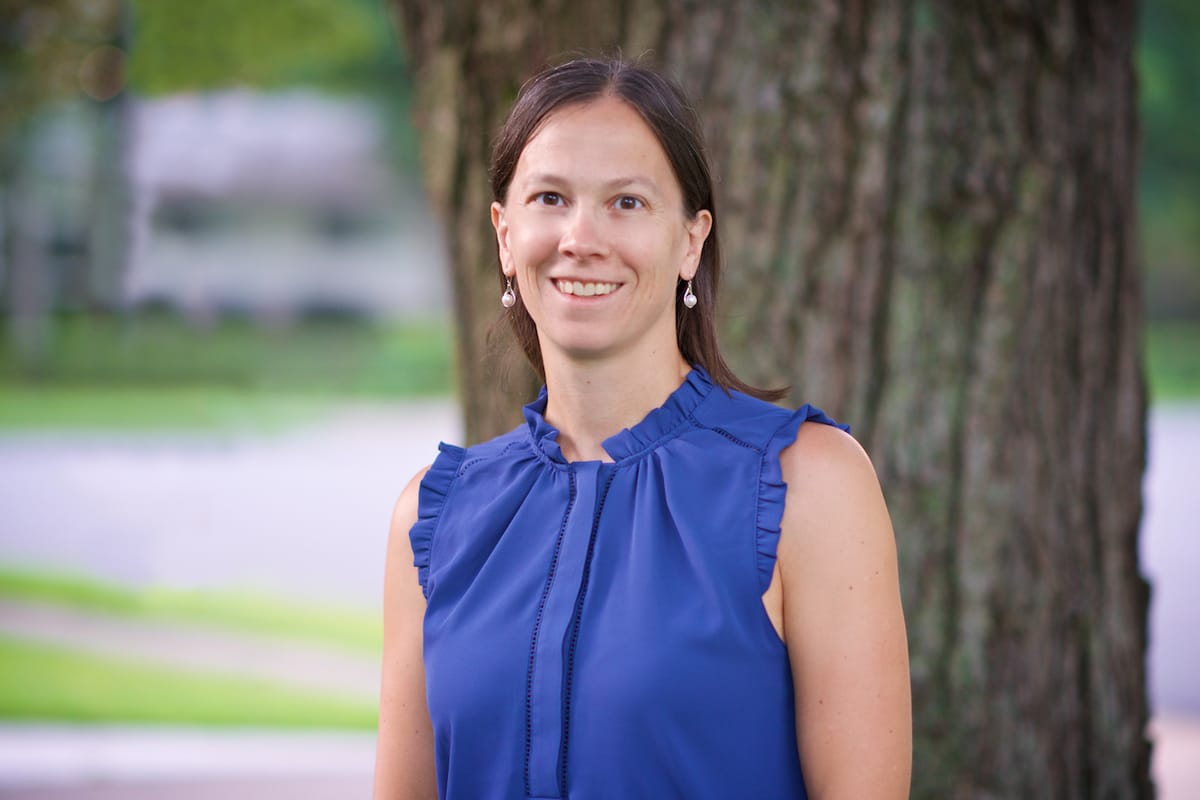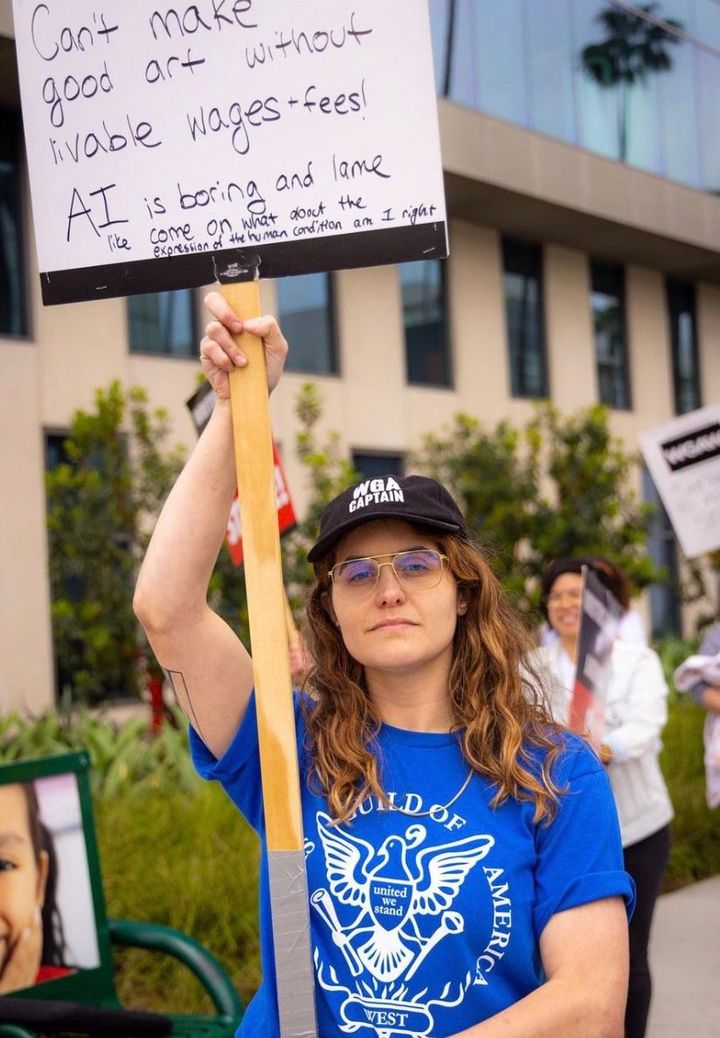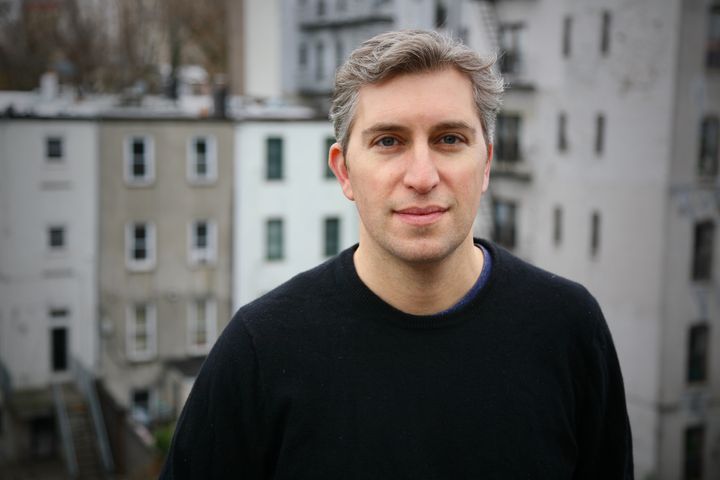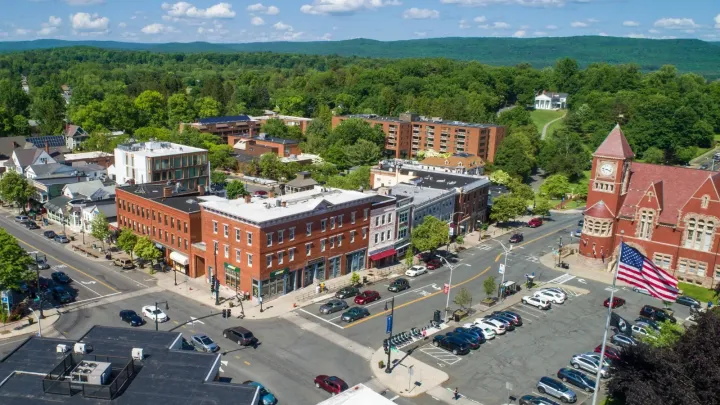Researching Inequities in Education — Alumni Profile, Erica Lee ’03
Moved by the systemic disparities she observed throughout her education, Erica Lee ’03 dedicates herself to research on issues of educational equity.

When Erica Lee ’03 was in high school, issues of structural racism began to compel her. Being surrounded by diverse classmates, Lee was deeply conscious of the ways that the racial and socioeconomic backgrounds of her peers affected their educational outcomes. These early experiences fueled Lee’s passion for history and sociology, in an effort to answer her frustrated question: “How in the world could our education system allow this to happen?”
Completing a sociology degree at Amherst, Lee began to explore the answers. Years after her graduation, Lee further developed her knowledge of the topic through a M.M.P. in Social Policy in 2017, which was then followed by a Ph.D. in Policy Studies from the University of Maryland School of Public Policy in 2019.
She brought her interest and skills to the U.S. Department of Education, where she worked as an Education Research Analyst for 14 years. In her current position as a researcher at Mathematica, Lee is working alongside her team on designing solutions in the area of Human Services.
Admission to Amherst: An Ambition in Sports
Lee developed a love for softball in high school, and described it as “a big part” of her life at the time. Reflecting on her college applications, Lee still vividly recalls grabbing a U.S. News and World Report college listing and writing to 20 to 30 Division III small colleges on the East coast — where she grew up — about her interest in joining the schools’ softball teams. Hearing back from Amherst’s softball coach was a big factor in Lee’s decision. “The Amherst coach was one of those who wrote back,” Lee said. “Looking back, it may be a silly reason to choose your college, but I was so happy [I chose that way] since I really enjoyed Amherst.”
After Lee received her acceptance letter, she made a visit to the campus. Meeting and learning about the college’s sports culture with the softball team that day validated Lee’s sense of belonging at Amherst.
Life in the Herd
Lee adored Amherst’s famously small class sizes because they gave her the opportunity to exercise her preferred mode of learning-through-discussion.
Lee took “Intro to Sociology” in her freshman year, and she fell in love with it. Lee credited her knowledge of sociology with informing her growing interest in education. Understanding sociology, for Lee, meant understanding society, and understanding society can help people create and analyze the public policies needed to improve society.
Lee’s first year at Amherst did not only revolve around things that complemented her strengths, but also those that challenged some parts of her worldview. Lee recounted one of her first experiences of culture shock at Amherst, as someone who had grown up in public schools: “Half of the student body here had gone to private [high] schools.”
Lee had thought that a boarding school, based on what she saw in movies and books, was more like a place for problem kids. “I was just completely unaware of the prep schools, so I was shocked. There were some people who said that Amherst was easier course wise than their prep school — that was not my experience at all. It was a different workload than I was used to.” Despite this, Lee’s academic experience was as enriching as it was challenging.
When it came to freshman memories, what was most near and dear to Lee’s heart was her time living in Valentine Residence Hall. “I love Valentine. We [were] kind of like our own thing.” Lee attributed her close connection with her friends in the hall to the residential life experience. “Because, you know, if it was cold you didn’t want to go out too far, you’re just hanging out with your friends there and it was really nice to be able to walk down to get food from Valentine [Dining Hall].”
During her free time, Lee also volunteered as a tutor for Amherst for a Better Chance, helping local high school students with their homework. This helped feed into her interest in education. Lee was also part of the Amherst College Diversity Coalition, an organization that advocated for diversity and inclusiveness on campus.
Studying Abroad: A Way to Fall for Amherst, Again
During her junior year, Lee studied abroad in Australia, attending the University of Melbourne for one semester. She spoke of this experience positively, with particularly fond memories of a criminology course that was surprisingly similar to sociology and the many Australian friends she made. Studying abroad also made her realize how excellently the Amherst education and faculty had prepared her for the world outside the Amherst bubble. “It’s amazing [the resources] we had there, and [I] became more appreciative of it,” added Lee.
Writing a Thesis in Sociology
Inspired by her hometown in Columbia, Maryland, Lee wrote a thesis about that town’s planned community — a neighborhood that was planned from its starting point on a previously undeveloped land for the priorities and conveniences of the local residents, which was founded in the late sixties. “The man who founded it, James Rouse, wanted to create a community that was very integrated across race and class lines. My thesis was looking to see how his vision for an integrated community played out in the school system.” During fall break, she went home and conducted over 25 interviews with locals and leaders in the community with regard to their responses about the direction that the place grew into.
Lee received funding for her research through the Bevans Scholarship. “It was really cool to win,” said Lee. Looking back, Lee is certain that the research for her senior thesis set her on the path to becoming a researcher in multiple ways. “I think my senior thesis definitely put me where I am now.”
Soon after graduation, Lee landed her first job as a research assistant on education studies at ICF, a social science research firm. Over the two years she worked there, she found her true calling in education research.
In the world of public policy, Lee focused on social policy. At graduate school at the University of Maryland, she applied to be a Presidential Management Fellow (PMF) and was accepted into the program. With her completion of the PMF program in 2009 and her previous research experience, Lee was then offered a position in the U.S. Department of Education that involved working with contractors who were evaluating federal education programs.
For her dissertation, Lee carried out research on whether Maryland had had an effective system to offer monetary incentives for higher quality childcare. “It’s actually kind of funny that I didn't do a dissertation on education [but] on childcare,” said Lee.
Her work as a research analyst in the U.S. Department of Education enabled Lee to retrieve data from early learning programs for her dissertation while simultaneously networking with crucial contacts in the Department of Health and Human Services (HHS), who provided her with important data about the childcare industry. “I had colleagues [from the Department of Health and Human Services] who could help me think through research questions that made sense in my dissertation.”
Lee did not let anything stop her from furthering her education. When she found out that she was pregnant with her first child just after the start of her Ph.D. program, she took a year-long leave to ensure her focus on classes.
Public Sector: Working for the U.S. Department of Education
In the early days of her employment at the U.S. Department of Education, Lee took on multiple responsibilities that consisted of writing reports on parental involvement and assessing programs during budget seasons. Lee’s aforementioned duties enabled her to interact closely with Congressional Services and the Office of Management and Budget.
These years were crucial to Lee, and she credits them with building the skills needed for her later role as an education research analyst within the Department of Education (ED).
As Lee stepped into her new position as an education research analyst in the Department, she provided technical expertise and peer-reviewed reports for a variety of high-visibility programs at ED and HHS.
Another big task for Lee was to manage P–12 program evaluations and studies on a variety of important topics such as early learning, Title I of the ESEA, and Promise Neighborhoods — a federal initiative with the vision of providing children with access to a strong system of academics, family, and community support by reconstructing poverty-stricken neighborhoods into areas of opportunities.
She also co-led an interagency early education research subgroup of the Interagency Policy Board on Early Learning, run by ED and HHS. Her most notable work was when she practiced leadership in the developing and authoring of a joint ED-HHS report on early childhood integrated data systems.
In her last two years working with the department, Lee continued to partner with contractors on long-term education projects. Lee also managed surveys on how states and districts responded to the coronavirus pandemic and the development of measures of
“capacity” to inform understanding on the effectiveness of technical assistance. These works were completed for the National Center for Education Evaluation and Regional Assistance and Institute of Education Sciences — agencies nestled within the U.S. Department of Education.
During Covid, as Lee got more involved with studies of children’s recovery from learning loss and dedicated a large amount of time to her two children, her research interest experienced a shift from racial justice in education into the early childhood area.

Private Sector: Working as a Human Services Researcher
In 2022, Lee transitioned to the private sector by joining Mathematica, one of the education contractors of the U.S. Department of Education. In making this decision, Lee says she hopes to diversify her knowledge in education by working on the other side.
“I think what schools do is so important, but in this country, I think a lot of the reasons why we have these disparate outcomes between children who are in poverty and children who are not, is not because of the schools,” Lee explained, “I think it’s because the children are in poverty and they’re in a stressful situation, and their parents are in a stressful situation. I would like to work on studies that are [broader than] just [focusing on] schools … and this is kind of where it goes back to my interest in sociology. What’s the whole system? How can we improve [it]? How can we improve kids' lives?”
At Mathematica, Lee’s work is to test strategies for the improvement of K-12 programs and to leverage her expertise to provide the development team with access and insights into the research evidence and evaluations of products’ effectiveness — items that inform the project leaders’ future solutions.
One of the most interesting projects that Lee is currently working on is enhancing federally-funded teacher-friendly practice guides. “My team is working to make a toolkit for teachers to actually use — a practice guide — to help them improve their instruction for writing in grades two through four.”
Lee notes that, “There are so many challenges that are always popping up but I’m really enjoying thinking through things like, ‘how do we fix that challenge?’”
“If [students] have a less stressful life, if they’re getting food, if they’re healthy, they might end up doing better in school.” As much as Lee still enjoys research on education programs, she also wants to explore what other policies can help kids be prepared to learn at school.
Messages to Amherst Students
Lee was grateful that her years at Amherst taught her how to write and how to think about problems from outside the box. Amherst showed her how to both solve a problem and pinpoint the problems that need to be solved.
When I asked her what advice she’d give current students on how to make the most out of Amherst’s resources, Lee said, “Visit faculty during their office hours. They are there to help you learn and figure out what your questions are in academia.”
She also added that: “One [important] thing is to not feel like you have to have a career path.” Lee explained that when she applied for Teach for America and was not shortlisted, the experience was devastating at first.
“In my mind, I was going to do Teach For America for a few years and then go to policy school.” She recalled. “I just had this in my mind and when that didn’t happen, it was really hard. I remember I called my parents crying and sad about it.” In the end, Lee quickly decided to change into the research route and still managed to secure her Master’s in Public Policy.
She explained that, “The thing to keep in mind is that you might have to start [by] doing non-glamorous duty in the research, like coding data. You’re gonna be doing stuff that might not be super exciting, but [that stuff is] really important. If it’s not done well, then the whole study falls apart. Be humble [alongside] other people … who’ve been doing this for a long time. When you step back and you listen, it makes a difference. Find a good mentor to help you think through what your career goals are. If you’re interested in something, as long as it pays the bills, go and do it, and then see where that takes you.”
“At Amherst, we could be very successful, but all of a sudden, when you leave college, there will be disappointments. And it is just important to not get down. At the time, it will seem like such a big deal, but in the end, everything is going to be fine.”





Comments ()